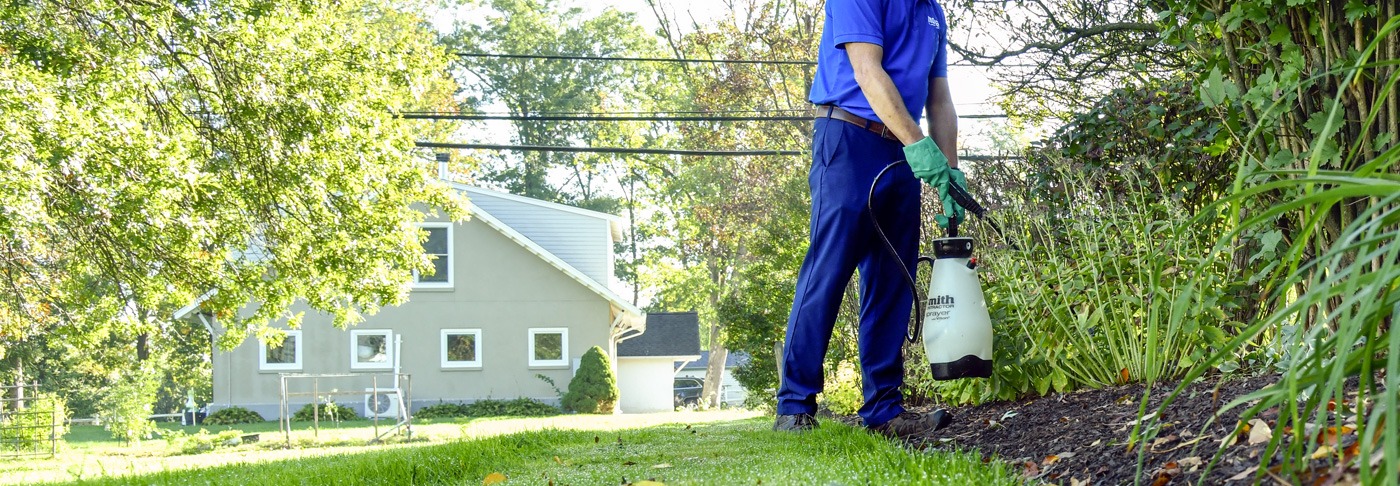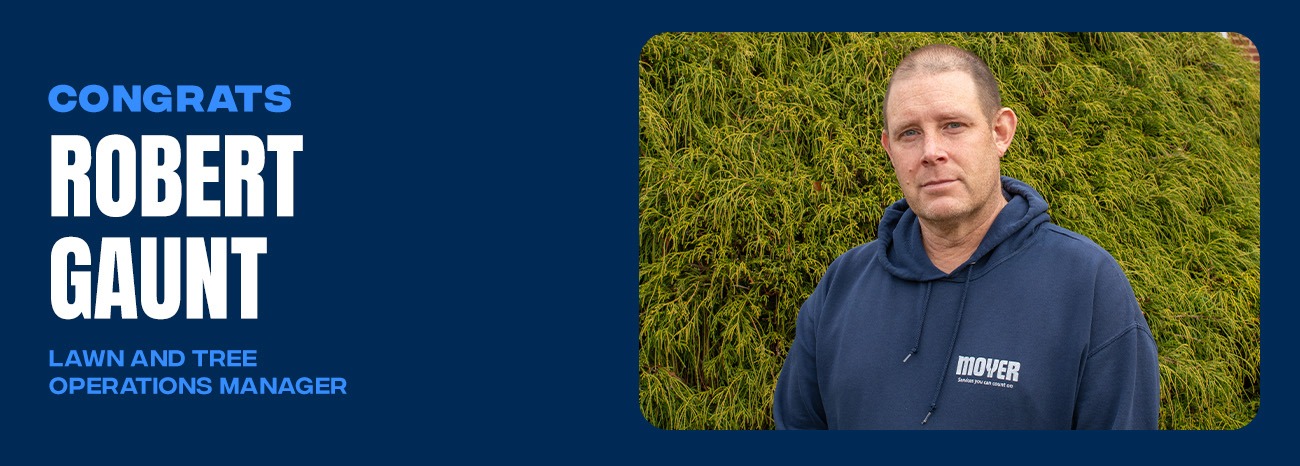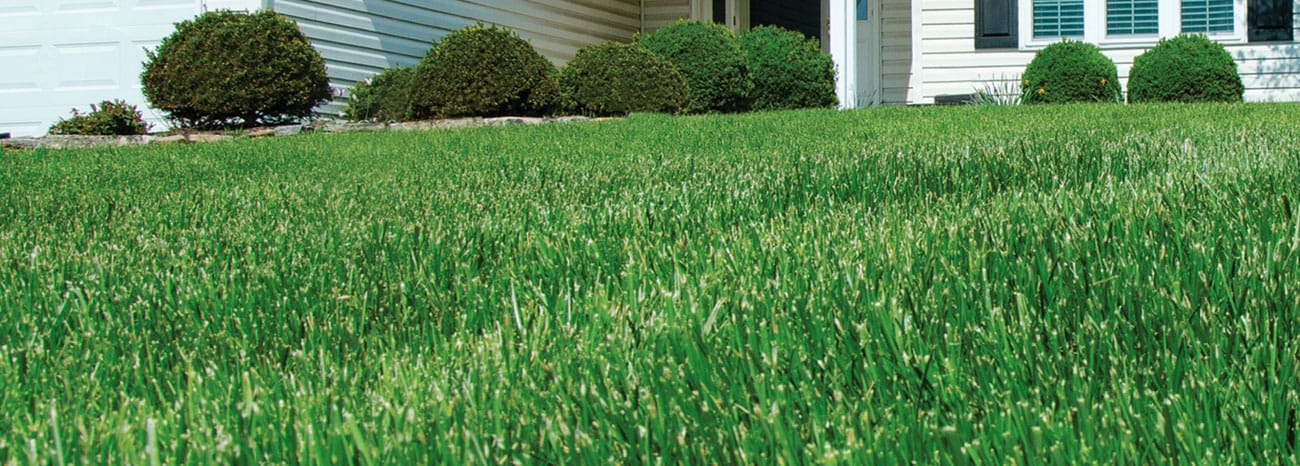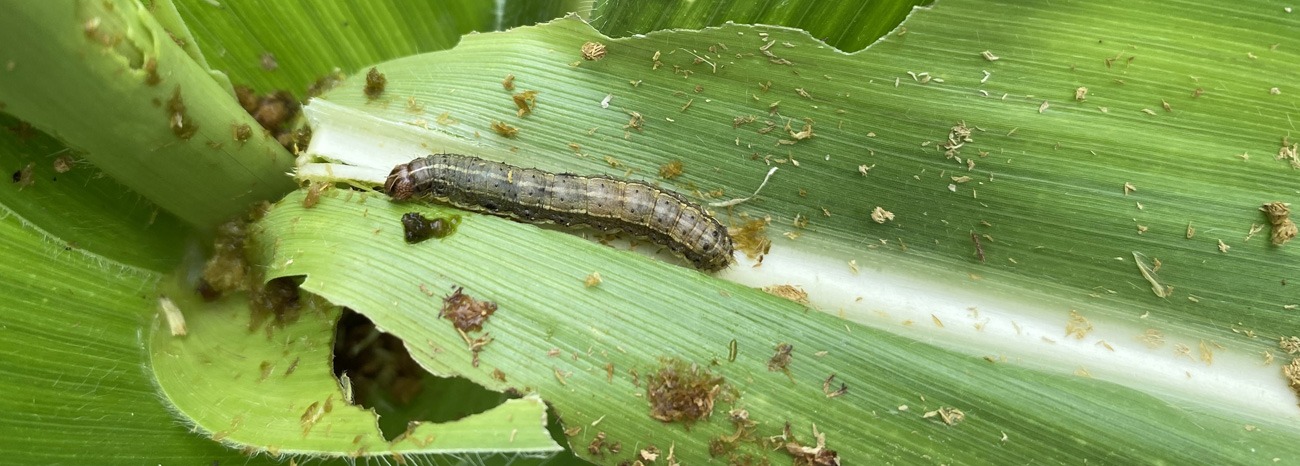We’re Local, Family Owned & Operated. We have a 100% Satisfaction Guarantee.
Don’t you love seeing the first signs of spring pop up in your flower beds? Cheerful yellow daffodils and brightly-colored tulips transport your thoughts to warmer days spent enjoying your outdoor spaces. But wait, there’s more. Weeds. Weeds are also waking up for the season. Persistent and aggressive, these weeds grow quickly to take up their share of real estate in your flower beds.
Like the early spring perennial flowers that we welcome, weeds stay dormant in the soil during the cold months of the year. As the earth warms and the right soil conditions emerge, so do the weeds. These weeds need to be dealt with because not only do they ruin your landscape’s curb appeal, they will choke your other flowers and plants.
My lawn never looked better.
The service was great. My lawn never looked better. The gentleman who did the work was knowledgeable, friendly and helpful.
Banish Bed Weeds
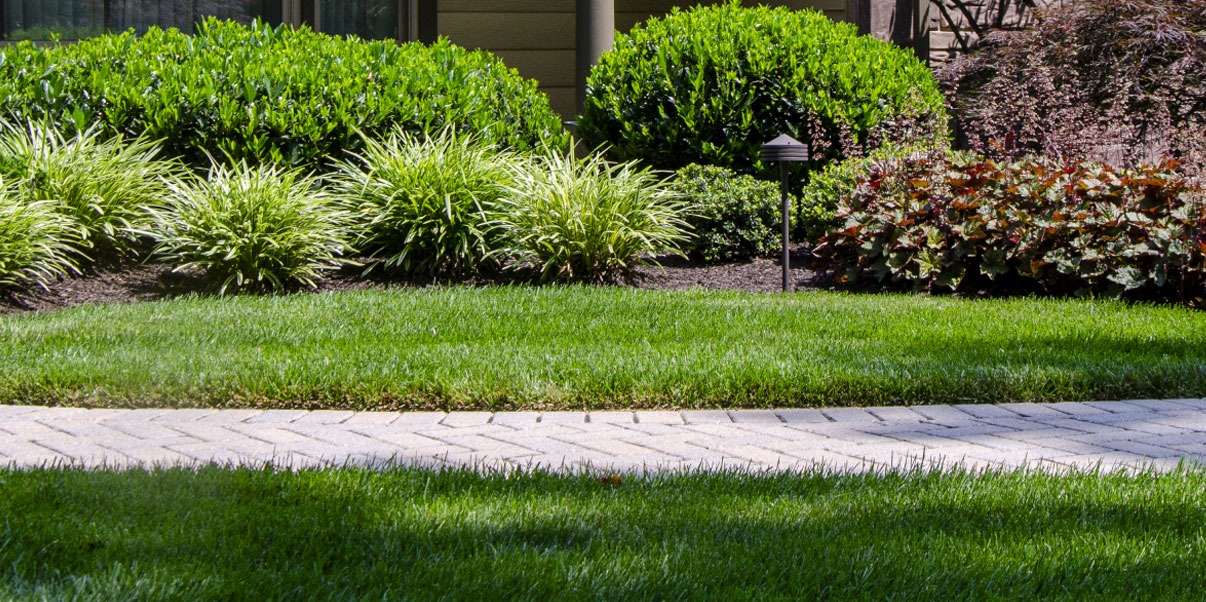
You’re a busy homeowner who invests time, energy and money to create flower beds and landscape features that draw compliments from your neighbors and friends. You enjoy the gratification of having a beautiful space to enjoy in your free time. Let us help you create more time to enjoy your flower beds with our professional bed weed control program. We eliminate and prevent weeds from taking over your beds. We start our bed weed control program early in the year to prevent most weeds from getting a head start.
Weeds are not only found in the lawn. They find their way into flower beds and shrub beds, even when mulch is applied. Stay ahead of the weeds. Call today to schedule your bed weed control program.
Common Bed Weeds in Our Area
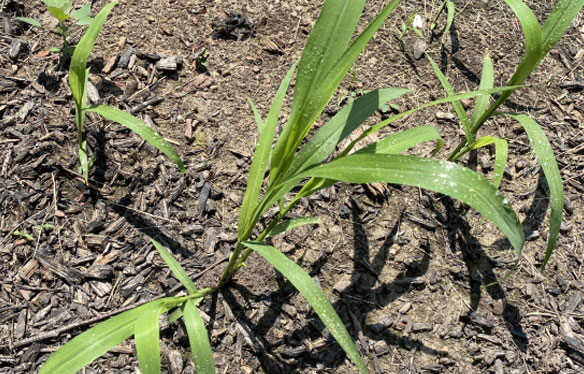 Grassy Weeds
Grassy WeedsOnce appreciated for their medicinal properties, dandelions are considered a weed by many homeowners.
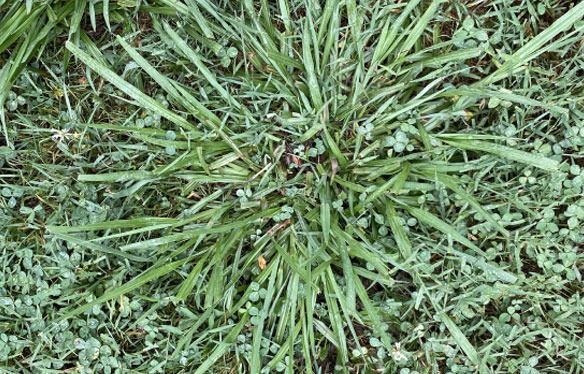 Crabgrass
CrabgrassCrabgrass is an annual grassy weed that spreads rapidly. It is light green in color and grows low to the ground in a star-shaped pattern. It thrives in hot, dry conditions and can quickly invade lawns, forming dense mats that suffocate other plants.
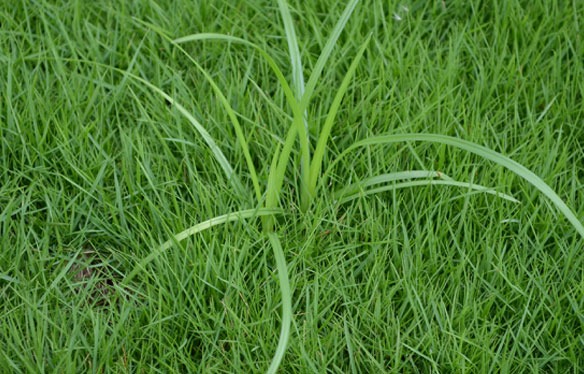 Nutsedge
NutsedgeNutsedge, or nut grass, is another persistent weed that gets in your flower beds, gardens, and lawns. Nutsedge does best in wet soil and is likely to be seen in spaces with poor drainage or areas where water collects from excess rainfall or overwatering. Pulling nutsedge won’t remove it completely thanks to its underground tuber root system, which allows it to spread easily, but it could lead to the plant dying out over time.
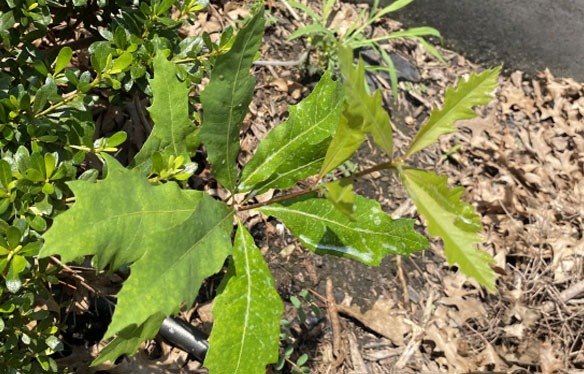 Small Tree Saplings
Small Tree SaplingsYes, that is a tree growing in your flower bed. The question is, do you want the tree to grow there? Small tree saplings are just that, tree seedlings that start to grow in your yard, flower beds or garden. If you do not want trees to grow in these spaces, then they will need to be removed.
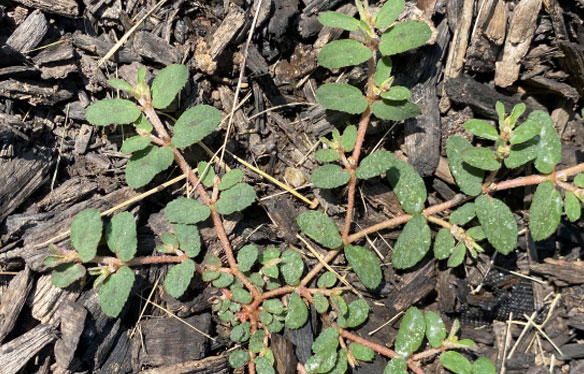 Spotted Spurge
Spotted SpurgeSpotted spurge is a weed that grows in patchy areas of grass and open spaces like flower beds and gardens every summer. It grows quickly and low to the ground. The key to controlling spurge is to get to it early before it takes hold for the season.
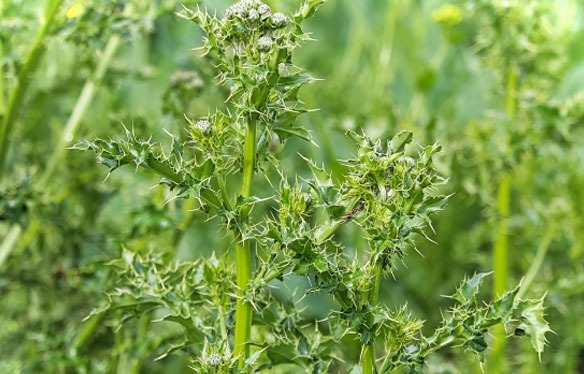 Thistle
ThistleThistle is a perennial weed with spiny leaves and a tall, prickly stem. It’s distinguished by its blooms of round purple or pink flowers. This weed is known for its deep root system, which makes it difficult to remove once established.
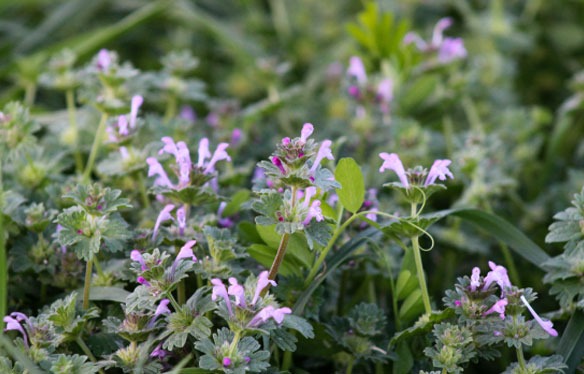 Henbit
HenbitHenbit is an annual weed with green to purple square stems and rounded leaves that blooms small, purple flowers in the early spring. Henbit spreads by seeds and can be found in gardens and lawns, preferring cool, moist conditions.
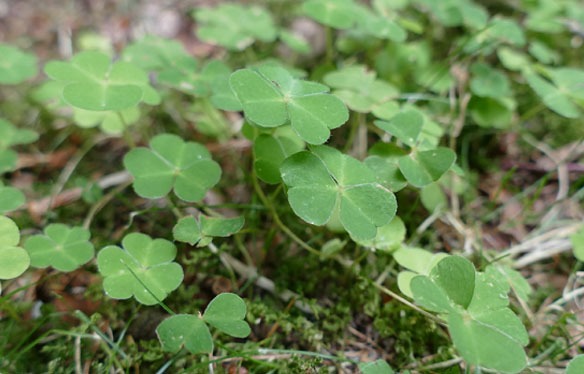 Oxalis
OxalisOxalis, also known as wood sorrel, is a perennial weed with heart-shaped leaves and delicate flowers that can be yellow, white or pink. It resembles clover and spreads through bulbs and seeds. Oxalis prefers shady, moist areas and its resilience can be difficult to control.
Let’s Make a Plan
If you would like to have beautiful flower beds, reach out to us. We’ll be happy to answer any questions and help you schedule an appointment for any services you require.
Have questions? Call 215.799.2016 or Contact Us
One Plan. Amazing Results.
Our Total Green Plan is All You Need
We take pride in our proven history of success over four decades of experience dedicated to lawn care. Over this time we have honed our growing skills into one effective plan to deliver the best results for your lawn.
FAQ
How do you control weeds in flower beds without killing flowers?
Hand-pulling weeds is the most direct and safest method, allowing you to remove unwanted plants without affecting the surrounding flowers. Our expert technicians will apply a selective herbicide that targets the weeds but is safe for your flowers.
Can you spray weed control in mulch beds?
Yes, you can spray weed control in mulch beds, but it’s important to choose the right type and apply it carefully to avoid damaging the plants you wish to save. Pre-emergent herbicides can be used in early spring to prevent weed seeds from germinating in the mulch. For existing weeds, a post-emergent, non-selective herbicide can be effective, but it should be applied carefully so you are targeting only the weeds and not the surrounding plants.
Does putting cardboard down stop weeds?
Putting cardboard down is an effective, eco-friendly way to discourage weed growth. The cardboard will block the light and prevent weed seeds from germinating. For best results, dampen the cardboard to help it conform to the soil surface, then cover it with a layer of mulch to hold it in place. Over time, the cardboard will decompose, providing the benefit of enriching the soil while effectively suppressing the weeds.
What is the best mulch to suppress weeds?
The best mulch for suppressing weeds is one that provides a dense cover, blocks out light and minimizes weed seed germination. Organic mulches, like wood chips, bark mulch, straw or pine needles are excellent choices because they add nutrients to the soil. You can also use black plastic or landscape fabric.
How long does a professional weed control service last?
Our professional weed control treatments are created to last 4 to 6 weeks between treatments. This is enough time to control the weeds already present and prevent new weeds from germinating. Follow-up applications may be necessary for persistent or recurring weeds. We will tailor our services to the specific needs of your garden.
Featured Articles
Join Us in Congratulating Robert Gaunt!
Moyer’s Own Lawn Care Expert, Robert Gaunt, Earns Master’s Degree in Plant Sciences At Moyer, expertise is something we invest in. That’s why we’re proud to celebrate a major achievement […]
Best Time to Fertilize Your Lawn in Pennsylvania (2025 Edition)
Exact months & soil temps for fertilizing cool-season lawns in Pennsylvania—plus spreader settings, product tips and pro safety advice.
How to Get Rid of Army Worms — Stop Lawn Damage Fast
Spot army worms early and eliminate them quickly with proven organic and chemical treatments—plus see how Moyer Indoor Outdoor can restore and protect your lawn all season long.
